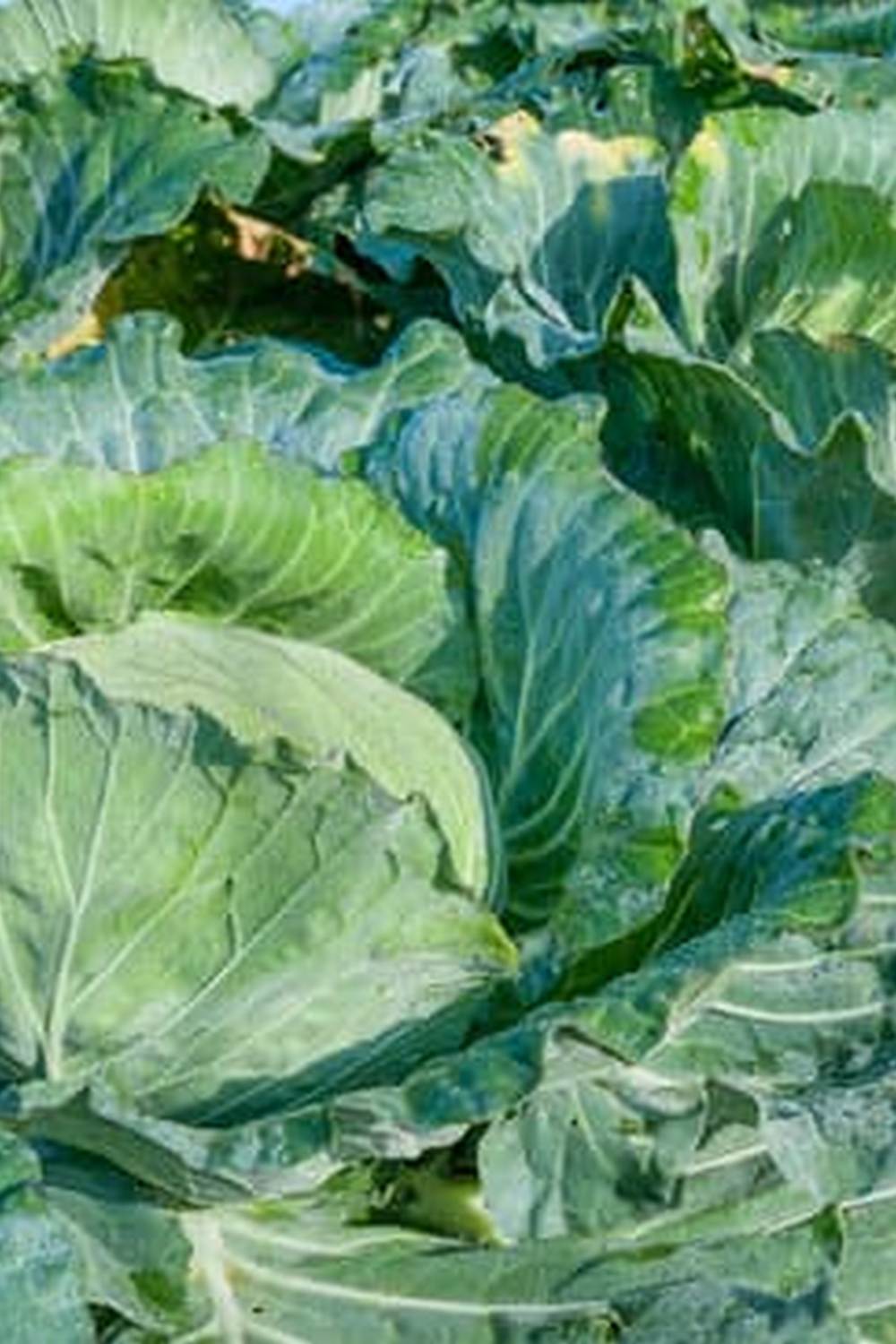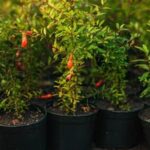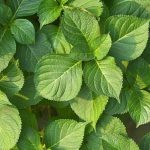The best pesticide for vegetable gardens plays a crucial role in ensuring the health and productivity of your plants. Pests can cause significant damage to your vegetables, affecting not only the yield but also the quality of your harvest. It is essential to understand the importance of using pesticides as a means of protecting your garden from harmful insects and diseases.
Pesticides are designed to target specific pests that commonly attack vegetable gardens, such as aphids, caterpillars, and beetles. Without proper pest control measures in place, these insects can quickly multiply and decimate your crops. By choosing the right pesticide for your vegetable garden, you can effectively manage pest infestations and maintain the health of your plants.
When selecting a pesticide for your vegetable garden, there are several factors to consider, including safety for humans and pets, effectiveness against target pests, and environmental impact. Whether you opt for organic or synthetic pesticides, it is important to weigh these factors carefully to ensure that you are making the best choice for both your garden and the environment.
In the following sections, we will explore the different types of pesticides available for vegetable gardens and provide recommendations for the top organic and synthetic options on the market.
Understanding Different Types of Pests
Pests can wreak havoc on vegetable gardens, causing damage to plants and reducing yields if left unchecked. Identifying common pests that attack vegetable gardens is crucial in implementing an effective pest management strategy. Some of the most common pests that plague vegetable gardens include aphids, caterpillars, beetles, mites, and snails.
Aphids
These small insects feed on the sap of plants, leading to distorted growth and yellowing leaves. They reproduce rapidly, making it essential to control their populations early on to prevent widespread damage.
Caterpillars
Caterpillars are voracious eaters that can quickly defoliate plants in a garden. Identifying their presence through chewed leaves and frass (excrement) is key to preventing extensive damage.
Beetles
Beetles such as the Colorado potato beetle and flea beetles can devastate vegetable crops. Their feeding activity can result in significant crop losses if not managed effectively. Regular monitoring and timely intervention are crucial in controlling beetle populations.
By understanding the behavior and impact of these common pests on vegetable gardens, gardeners can take proactive measures to protect their crops. Choosing the best pesticide for vegetable gardens that targets specific pests while considering safety and environmental impact is essential in maintaining a healthy garden free from destructive insects.
Factors to Consider When Choosing a Pesticide
When it comes to choosing the best pesticide for vegetable gardens, there are several factors to consider to ensure both the health of your plants and the environment. One of the most important factors is safety. It is crucial to select a pesticide that is safe for use around edible plants, as well as safe for pets, children, and beneficial insects. Reading and following the instructions on the pesticide label is essential for minimizing any potential risks.
Effectiveness is another key factor to keep in mind when selecting a pesticide for your vegetable garden. You want a product that will effectively control the pests you are targeting without causing harm to your plants or the surrounding ecosystem. Consider how quickly the pesticide works, how long it lasts, and whether it provides broad-spectrum or targeted pest control.
Environmental impact is a critical consideration when choosing a pesticide for your vegetable garden. Opting for products that are low in toxicity to non-target organisms and have minimal effects on water sources and soil health is important for maintaining a healthy ecosystem in your garden.
Additionally, look for pesticides that break down quickly in the environment to reduce their long-term impact on wildlife and beneficial insects. By weighing safety, effectiveness, and environmental impact when selecting a pesticide, you can make an informed decision that supports a thriving vegetable garden while minimizing harm to the environment.
Organic vs Synthetic Pesticides
Organic pesticides are becoming increasingly popular among gardeners who want to avoid harsh chemicals and synthetic additives when treating their vegetable gardens. One of the main advantages of using organic pesticides is their minimal environmental impact. Organic pesticides are derived from natural sources, making them safer for the ecosystem and reducing potential harm to beneficial insects like bees and butterflies. Additionally, organic pesticides are often biodegradable, further minimizing their impact on the environment compared to synthetic alternatives.
Another key benefit of organic pesticides is their safety for human health. Since organic pesticides use naturally occurring substances like plant oils and minerals, they are less toxic than synthetic chemicals. This makes them a preferable choice for gardeners who want to minimize exposure to potentially harmful substances while working in their vegetable gardens. Furthermore, organic pesticides are often milder in scent compared to synthetic options, creating a more pleasant gardening experience without strong chemical odors.
Despite these advantages, organic pesticides may have some limitations compared to synthetic counterparts. Organic options may be less potent and require more frequent applications to effectively control pests in vegetable gardens.
Additionally, some organic pesticides may have a shorter shelf life or be less stable when exposed to environmental conditions like rain or sunlight. However, many gardeners find that the benefits of using organic pesticides outweigh these drawbacks when considering the long-term health of their plants and the surrounding environment.
| Benefit | Organic Pesticides |
|---|---|
| Environmental Impact | Minimal due to natural sources |
| Human Health | Safe with lower toxicity levels |
Top 5 Organic Pesticides for Vegetable Gardens
Organic pesticides are becoming increasingly popular among gardeners who prioritize using natural and eco-friendly products to protect their vegetable gardens. These pesticides are derived from natural sources such as plants, minerals, or bacteria, making them safe for the environment, beneficial insects, and humans. When choosing the best pesticide for vegetable gardens, organic options are often preferred for their effectiveness and minimal impact on the ecosystem.
One of the top organic pesticides for vegetable gardens is neem oil. Neem oil is derived from the seeds of the neem tree and is known for its insecticidal properties. It works by disrupting the feeding and reproductive behaviors of pests, making it an effective solution for controlling a wide range of insects such as aphids, whiteflies, and mites. Additionally, neem oil is biodegradable and does not harm beneficial insects like bees or ladybugs.
Another excellent organic pesticide option is diatomaceous earth (DE). DE is made from fossilized remains of diatoms and works by dehydrating insects upon contact. It is particularly effective against crawling insects such as ants, slugs, and beetles. DE can be easily applied by sprinkling it around the base of plants or directly on pests. This natural pesticide is safe to use around pets and wildlife while effectively keeping unwanted pests at bay in vegetable gardens.
A third organic pesticide that stands out for vegetable gardens is pyrethrin. Pyrethrins are derived from chrysanthemum flowers and are known for their fast-acting insecticidal properties. They target a wide range of garden pests including caterpillars, beetles, and aphids while posing minimal risk to mammals or birds. Pyrethrin-based products come in various forms such as sprays or powders, providing gardeners with versatile options to combat different types of pests effectively.
| Organic Pesticide | Effectiveness |
|---|---|
| Neem Oil | Disrupts feeding & reproductive behaviors of various insects |
| Diatomaceous Earth (DE) | Dehydrates crawling insects like ants & beetles |
| Pyrethrin | Fast-acting against caterpillars, beetles & aphids |
Top 5 Synthetic Pesticides for Vegetable Gardens
Synthetic pesticides are chemical-based substances designed to control pests and protect plants in vegetable gardens. While some gardeners prefer organic alternatives, synthetic pesticides can be highly effective in combating stubborn pests. When selecting the best pesticide for vegetable gardens, it’s essential to consider factors such as the severity of the pest infestation, the type of vegetables being grown, and potential environmental impacts.
Here are the top 5 synthetic pesticides that are known for their effectiveness in controlling pests in vegetable gardens:
- Neem Oil: Neem oil is a popular synthetic pesticide that acts as a repellent and disrupts the growth and development of insects.
- Spinosad: Derived from naturally occurring soil bacteria, spinosad is an effective pesticide against caterpillars, thrips, and other common garden pests.
- Pyrethroids: Pyrethroids are synthetic chemicals derived from natural pyrethrins found in chrysanthemum flowers. They are highly effective against a wide range of insects but should be used with caution to avoid harm to beneficial insects.
- Bacillus Thuringiensis (Bt): Bt is a bacterium that produces proteins toxic to certain insect larvae, making it a safe and effective pesticide for controlling caterpillars in vegetable gardens.
- Malathion: Malathion is a broad-spectrum insecticide commonly used against aphids, spider mites, and other sucking insects that can damage vegetables.
When using synthetic pesticides in vegetable gardens, it’s crucial to follow the manufacturer’s instructions carefully to ensure proper application and minimize any potential risks. Additionally, always wear protective gear such as gloves and masks when handling these chemicals to protect yourself from exposure. While synthetic pesticides can be effective in controlling pests, it’s important to use them judiciously and consider organic alternatives for more sustainable gardening practices.
Application Tips
When it comes to protecting your vegetable garden from pests, using the best pesticide for vegetable gardens is crucial. However, applying pesticides correctly is just as important to ensure the safety of your plants and the environment. Here are some guidelines on how to safely and effectively apply pesticides in your vegetable garden:
- Read the label: Before using any pesticide, carefully read and follow the instructions on the label. This includes information on how to dilute the product, when to apply it, and any safety precautions you need to take.
- Timing is key: Apply pesticides during periods when pests are most active, typically in the early morning or late afternoon. Avoid applying them during windy conditions or when rain is expected to prevent drift or runoff.
- Protect yourself: Wear appropriate protective gear such as gloves, goggles, long sleeves, and pants when handling pesticides. Make sure to wash your hands thoroughly after application.
Proper application of pesticides not only ensures their effectiveness but also minimizes the risk of harming beneficial insects and pollinators in your vegetable garden. By following these guidelines, you can safeguard your plants against pests while promoting a healthy and thriving garden environment.
Remember that using pesticides should be a last resort in pest management. Consider implementing cultural practices like crop rotation, proper irrigation, and maintaining soil health to reduce pest infestations naturally before resorting to chemical solutions. By being mindful of how you apply pesticides and exploring alternative methods of pest control, you can maintain a bountiful vegetable garden while minimizing negative impacts on the ecosystem.
Alternatives to Pesticides
As important as it is to have effective pesticides for vegetable gardens, it is also essential to explore alternatives to traditional chemical-based options. Natural methods for pest control not only promote a healthier environment but also ensure the safety of your produce and those who consume it. By opting for eco-friendly options, you are taking a step towards sustainable gardening practices.
One of the best ways to deter pests in vegetable gardens naturally is by using companion planting techniques. This involves strategically planting certain herbs, flowers, or vegetables together that repel or confuse pests. For example, marigolds can help keep aphids away from your tomato plants, while basil can deter mosquitoes and flies. Additionally, incorporating beneficial insects like ladybugs and lacewings can help control unwanted pests without the need for harsh chemicals.
Furthermore, practicing good garden hygiene by regularly weeding, removing debris, and rotating crops can also prevent pest infestations. These simple yet effective methods can minimize the need for pesticides altogether. Remember that when considering the best pesticide for vegetable gardens, sometimes the most sustainable option is embracing natural solutions that work in harmony with nature.
Frequently Asked Questions
What Is the Best Pesticide to Use on Vegetables?
The best pesticide to use on vegetables is one that is specifically formulated for edible plants. It should be labeled as safe for use on fruits and vegetables to ensure it won’t leave harmful residues. Organic options like neem oil or insecticidal soap are popular choices among gardeners.
What Is the Safest Pesticide to Use in Your Garden?
When it comes to the safest pesticide to use in your garden, many experts recommend using natural or organic solutions. These pesticides are typically derived from plant-based ingredients and are less harmful to the environment, beneficial insects, and human health compared to synthetic chemicals. Examples include diatomaceous earth, pyrethrin, and horticultural oils.
Can I Use Insecticide in My Vegetable Garden?
Yes, you can use insecticide in your vegetable garden, but it’s important to choose products that are labeled safe for edible crops. Always read and follow the instructions on the label carefully to avoid any potential risks of contamination or toxicity in your harvested produce.
Additionally, consider using environmentally friendly options like biological control methods or botanical insecticides whenever possible.

If you’re looking to get into vegetable gardening, or are just looking for some tips on how to make your current garden better, then you’ve come to the right place! My name is Ethel and I have been gardening for years. In this blog, I’m going to share with you some of my best tips on how to create a successful vegetable garden.





